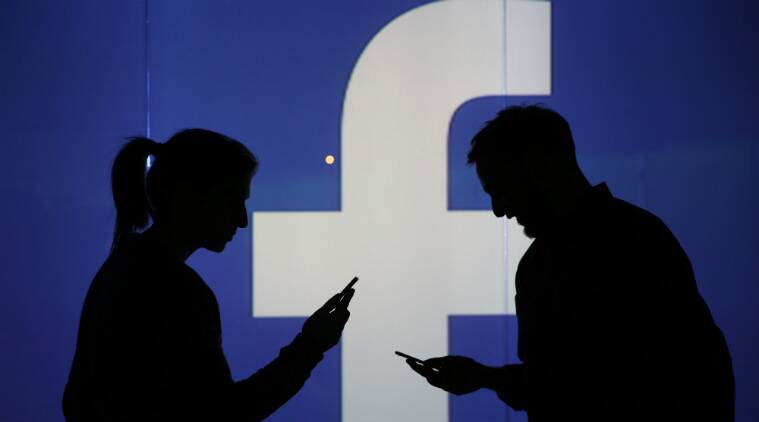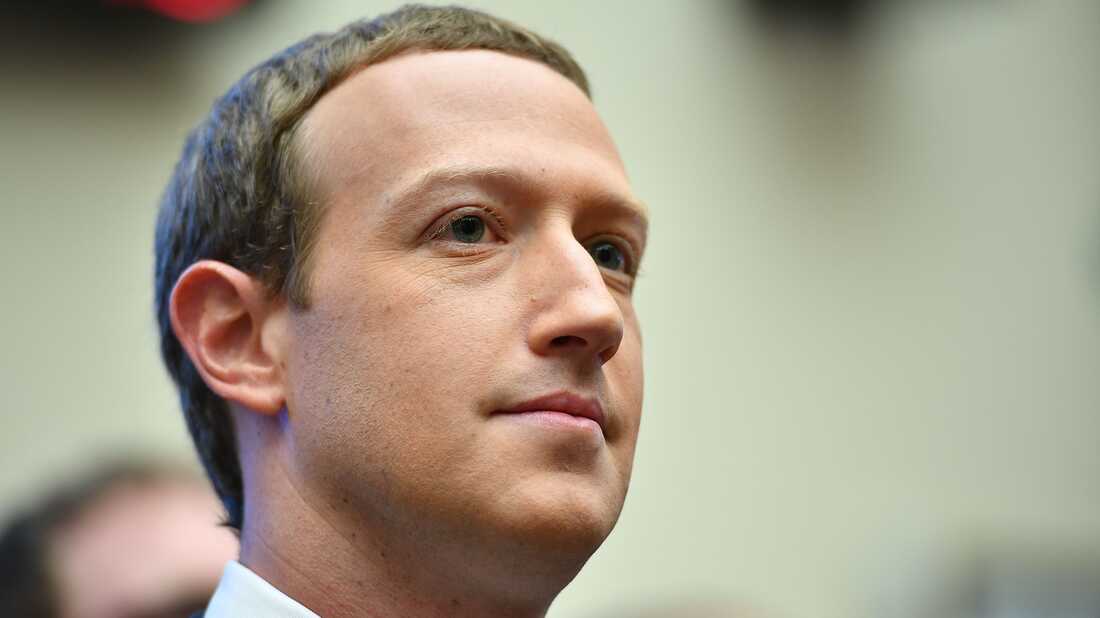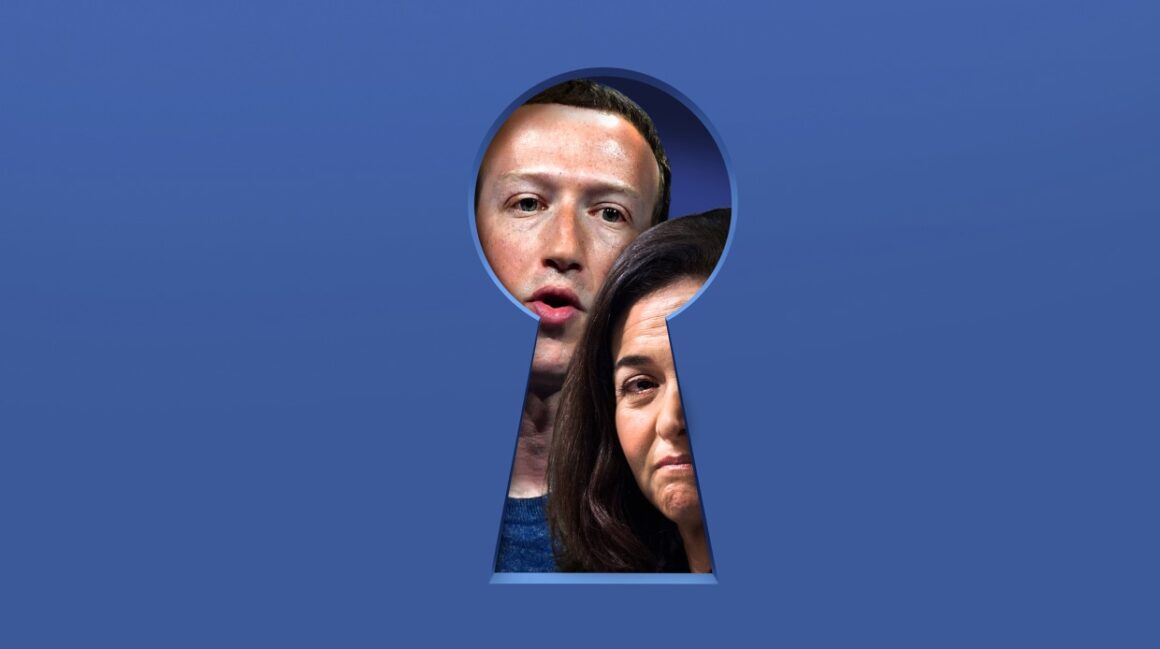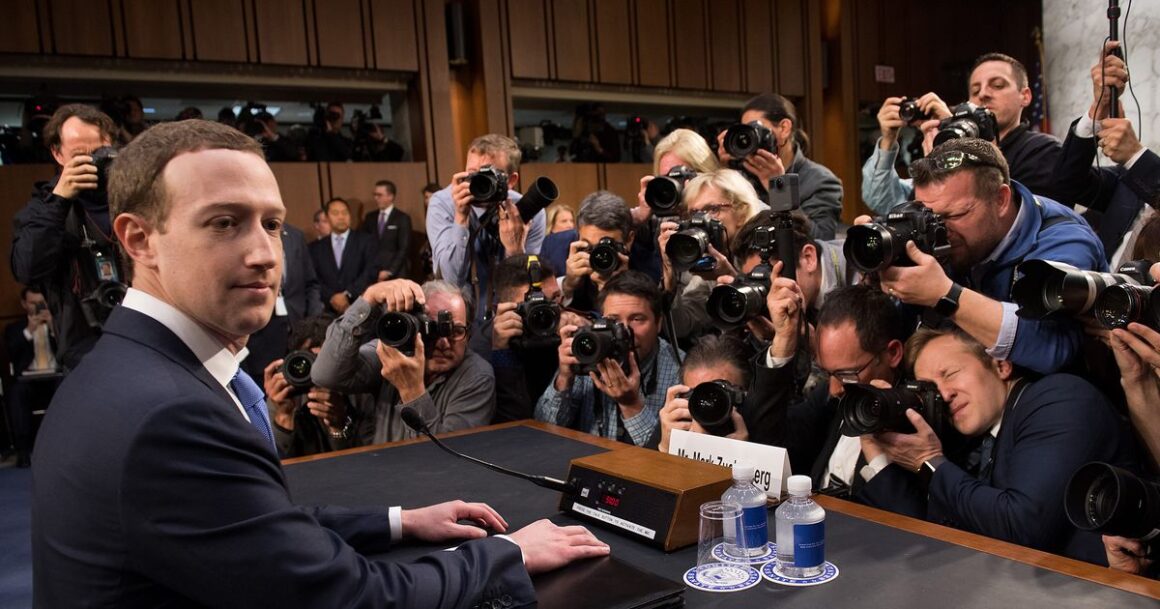Speaking as one of the ‘older people’ that Mark Zuckerberg is no longer interested in catering to, or so it would appear, the Metaverse is already sounding like a bad idea, at least in theory. One has to wonder if Zuckerberg has ever heard the saying that goes “a leopard can’t change its spots”, or perhaps “a zebra can’t change its stripes”. Hell, there’s likely to be several different variations on that saying out there, and even us ‘old’ people, y’know, anyone over 27, like Zuckerberg, who’s 37, don’t know them all. But a lot of us do know the meaning well enough to understand that it means that this idea to venture into the Metaverse, which I’ll go into in a moment, sounds exciting, fun, worth looking at for a couple of minutes at least, and could be a way to usher in a new era of online living. But that’s kind of where the excitement might end, at least for some of us.

Technology and its advancement are at the root of this issue.
It’s easy to sit back and say that a lot of us might not fully understand this since depending on your generation you might have been born into a world where innovation and technology still started and ended in a very simple place compared to what’s been going on for the last several decades. Hell, since the 80s things appear to have been gaining speed when it comes to technology and how quickly it becomes outdated as something new and improved comes out. That’s nothing new really since humanity has been one-upping itself throughout the centuries as new inventions and methods have been continuously developed to make life easier, more fun, and less intense. There are pros and cons to that of course, and I’ll list just a few:

- Pro: Making things easier and more accessible to people can create a great deal of benefits such as more free time to pursue other interests as their work can be done quicker, more efficiently, and without as much hassle. It can lower stress levels as well, making it possible for people to live longer and enjoy their lives in a manner that promotes good health and a stronger sense of community among those that come to share such an experience.
- Con: The act of making things too easy can promote laziness and an inability to utilize practical and common core skills that are needed for everyday life. When technology becomes too accessible, people can (not will, but can) lose touch with the world around them in favor of the easier methods offered by various elements of technology.
- Pro: Thanks to technology the world is more connected than ever, meaning that people can talk to each other from a continent or more away, and the ability to learn about other cultures and create a worldwide community is even mroe possible.
- Con: How well has this worked? Really? It’s a positive that connections can be made between people that have similar interests and the capability to work together on one project or another, or simply communicate in one way or another, but the propensity for abuse has been seen more than once since the advent of the internet. Hackers wasn’t just a movie after all, even if it wasn’t entirely accurate.
- Pro: People are living longer due to various elements that have been helped along by technology.
- Con: Yay for people living longer and staying healthy, but damn because slowly but surely, the world around us is getting smaller, meaning we’re running out of room, because of technology. It might sound horrible, especially since nobody wants to lose their loved ones sooner rather than later. But the current advances are still helping the overpopulation effort without finding a solution to the lack of space.
Technology is great, don’t get me wrong on that count, but the speed at which it’s moving now and the fact that those who know how to navigate it, use it, and use it to gain control of what people see, hear, and even believe is kind of unnerving. There kind of has to be a core of trusted controllers, but placing too much power in one person’s hands, well, we’ve seen how that goes.

Selling a hopeful fantasy
So I did go a little wide of the mark, but the point is that technology has been great since it has done a great deal to help humanity and push our species forward but at a great cost. I can already hear people saying that the Metaverse isn’t a problem in that regard, but I’m getting there. Technology is quite honestly a boon and a bane to humanity, and when talking about the Metaverse, which sounds like a great idea, but is also something that sounds like Ready Player One mixed with Virtuosity and the earlier concepts of cyberspace that were around when Zuckerberg was still a young’un, and before he was even born in fact. In other words, it sounds like something that might be kind of a fun idea, but also like something that could eventually spiral out of control in a big way. If you’re like me, then you already have a lot of questions about the Metaverse, and while there are plenty that have been answered, there are still plenty to be asked, such as:
- Who’s going to control the Metaverse? If Zuckerberg is thinking that he’s going to take control of it then shut it down, NOW. So far Facebook hasn’t been the worst thing in the history of the internet, but it’s getting there since plenty of people have been finding issues with the social media site over the years, as well as Zuck’s practices that have taken place in the last several years. (‘Fact’ checkers, yeah right). Putting Zuck in charge of an online realm such as the Metaverse is kind of like drawing a trench (forget the polite little line) in the sand in order to separate those that believe this will be a good idea and those that are willing to die on their proverbial hill. Zuck isn’t a leader, he’s a controller and a manipulator according to a lot of people, but he’s not a leader in any sense of the word.
- How deeply will people be able to immerse themselves in the Metaverse? Obviously people have to log off to take care of themselves, but one has to wonder if this kind of thing is going to create even more individuals that forget what it’s like to step outside at times or if that’s a completely unfounded fear. It does sound a little paranoid, doesn’t it? But considering how many people there are that can barely handle the real world these days, how many more might there be once the Metaverse is able to allow them to check in and stay for a while? It’s not paranoia if it’s already happening.
- Is Zuckerberg selling a possible reality or a hopeful fantasy? So far it looks as though more companies are trying to lean away from Facebook and gain some distance rather than stick with it and go the distance. It could be that the number of supporters that Zuck has for this lengthy and expensive project might not really be getting the attention or recognition that might help to show solidarity, but it does feel as though there’s a serious lack of confidence at the moment as Facebook appears to be something that a lot of people aren’t too keen to be associated with at the moment. Hey, I could be reading something wrong, but if I’m not, then it’s not much of a surprise.

That last point, that Facebook is lacking the confidence from many of its users, is kind of funny since a lot of us still use Zuck-controlled platforms and still ride the guy down. Hey, I’m not telling you to stop, since the sites are still useful. It’s the fact that we have to guess what he’s up to, that there isn’t enough transparency, and that if the Metaverse does fall under his sway in any manner, it’s fair to state that Zuckerberg will be the last person who should get to control it. Why you ask? Good question.

Pre-existing issues could be a hindrance to moving forward.
Is anyone else thinking about what Facebook has become in the past several years, and what it’s been leading up to before the trial where Zuck actually had to sit on a cushion to make himself appear taller? Okay, maybe there was another reason, but a grown man had to have a booster seat, no matter how much of a ‘tall tale’ he would like you to think it is. Zuck doesn’t control every media source in the world, so you decide what’s real. Apart from that, however, the manner in which Facebook has treated the data of its users, how it’s stifled their voices, and how it’s definitely been used to pick political alliances no matter what’s been said, have all become reasons why the level of trust that the platform once enjoyed is no longer as prominent as it used to be. Let’s go over a few talking points, and figure out why Facebook isn’t worth trusting these days.

- There’s still an issue about privacy and how FB tends to use the accounts of many of its users, if not all of them, as marketing tools to attract more businesses. A lot of people don’t like thinking that they’re a commodity that’s making money for someone else, even if there are a lot of different arguments that can be used to work around this issue. Eventually people tend to get tired of listening to the justifications and either give up and move on or stay with it and accept the fact that FB is allowed to do whatever it wants.
- Zuck has actually been put on record by stating that if he didn’t own the majority of FB that he would have been fired long ago. How in the world does that instill confidence in anyone? It would typically mean he’s too corrupt and someone would find out, or he’s too timid and people would find it impossible to convince themselves that he has their interests at heart. As of right now Zuck is looked at as a genius by some and a manipulator by others, the problem is that a person can be both.
- Granted, a business model needs to work to keep a business running, but adapting a business model that focuses on a much narrower range is all well and good, but essentially telling ‘old’ people that they’re no longer the focus of a site doesn’t instill a lot of confidence or trust since no one likes being ignored. That might sound like a petty problem, but like it or not, the ‘older’ generations have plenty of people that like to stay connected, meaning they enjoy FB simply for the chance to get a hold of people they haven’t seen or spoken to in a while, or they enjoy using it for other reasons that bring them a good deal of enjoyment. It doesn’t feel likely that Zuck would outright ignore the older users, but by focusing so intently upon an age range that stops at 27 he might as well be telling the older users that they can use FB but they shouldn’t expect much other than the most basic service.
- Businesses pulling away and gaining distance from another business is never a good sign since it either means that there’s no confidence in the business model, or there’s something shady going on, or both. Right now the average consumer is essentially fueling the rumors that FB is shady as hell and isn’t getting any better, but when others tend to stand up and say something of the same nature the idea solidifies a bit, especially when FB hasn’t proven beyond the shadow of any doubt that the rumors aren’t true.
At this time it really feels as though Zuck wants to be in charge of it all and wants Facebook to be the new internet, which is kind of an unnerving thought. Trying to even think about what it might be like to experience this new type of online landscape is enough to think that someone needs to stand up and block Zuck’s attempts in some way, but even that doesn’t sound reasonable.

Welcome to Zuckerland?
It isn’t enough to not like the guy simply because of what you’ve heard and read, but those are typically good places to start so long a the journalism that’s going into each article is solid and doesn’t exaggerate too much. Here at Radass there’s just something about this guy that doesn’t feel trustworthy in the least, and while feelings don’t matter as much as facts, there’s still a gut-feeling that he’s not to be trusted in the least, and neither, by extension, is his site. While we can’t say much other than what we felt about Zuck, here are a few reasons why the site isn’t winning a lot of trust from people these days.
- There are massive privacy issues. When you’re online you want to feel safe and secure, and it is possible depending on what kind of software you use. But going on FB these days and wanting to be safe is like walking into a brothel and hoping you remembered to bring protection. Go ahead and laugh at the analogy, I’m laughing too, but the point is that making your way into FB is no more safer than wading into deep, shark-infested waters. It’s fair to say that if you mind your business and don’t attract too much attention, you’ll be fine. But the first time you show a struggle, someone’s going to notice and likely pounce. Maybe, maybe not, but it’s a chance we all take when we log on.
- Fact-checking, ’nuff said. It’s likely that a lot of us have seen a notice pop up on at least one or more posts we’ve made over the last year or two alluding to the fact that some of the information we posted might have been false and is now being called out since the fact-checkers at Facebook have been on a tear trying to spread the ‘right’ information in order to keep the people informed and prevent the spread of misinformation. That’d be all well and good if that was really what was going on, but having seen a couple of jokes and satirical posts with a fact check applied to them, the kind of faith that this doesn’t instill has managed to grow over the last several months. It’s one thing to correct incorrect facts, but it’s another to correct a joke when the punchline is supposed to be intentionaly misleading because it’s HUMOR.
- There is an issue with freedom of speech that comes with the fact checkers, since like it or not, shutting down someone’s ability to say something on a public forum is a denial of free speech. Some might want to state that no one is barring people from saying anything, but when one hears about fact checkers actually styming speech from being heard, or even taking certain comments and posts down, that IS a denial of free speech. Granted, FB is a different matter, but when part of your business model is to allow people the freedom to say what they want, unless that speech does incite or call for harm toward others, then you’ve effectively let someone in the door only to bind their mouth with duct tape and tell them to not move from their spot while enjoying everything there is to enjoy. Friendly censorship under a watchful eye is still censorship, and for good or ill, people don’t care to be told what to do in such a manner.
- How much control is Zuck going to have over the Metaverse? Taking into consideration how much control he has over FB, it’s fair to state that if he really wants to retain his spot as one of the top dogs that he’s not going to be shy about trying to take over as much of this fantasy land as he can. One of the many problems with this is that giving that kind of power to one man isn’t a wise idea, since history has shown how one person can mean well, but how it’s far more likely that they’re going to think that after a while they’re the best and only arbiter of morality around, since so much rests on their shoulders. I agree, it sounds like paranoia still, but the history that we can look back on and recall, those of us that are old enough anyway, is hard to dispute.

Trusting Zuck is getting harder by the day thanks to the things he says, the things people see on FB, and the overall idea that if Zuck and those like him continue to get bigger and more influential in stature, we’ll have only ourselves to blame for buying into his bs. What he’s provided thus far in his time is useful, it’s fun, and it’s been a great invention, but not limiting him when it was possible, not telling him ‘enough’ could be kind of a mistake. It’s a fine line to walk since leaving control of the Metaverse in Zuckerberg’s hands sounds like one of the worst possible ideas to come along in a while. But allowing it to be controlled by a large group of people that might have warring interests doesn’t sound much better. It’s a conundrum to be certain, but it’s one that we’re facing at this time and one that is going to take a great deal of patience to sort out.
What does this mean moving forward?

Well, if one is going to give in to paranoia, it might mean that society is going to start turning inward and feed into the social media addiction that’s already been seen to grow exponentially over the years. That’s one fear at least, and the Metaverse is another idea that only feeds into it no matter how much some folks want to put a positive spin on it. There are a lot of questions being asked by a lot of people, and while some of them are utter nonsense and come from a place of fear, others might at least need to be addressed.

- As I already mentioned, some people can’t handle the real world, so what’s added exposure to the online world going to do? It might not sound like much of a threat or a worry that many will take seriously, but it’s still one that might need to be considered worthy of notice.
- If enough people already feel pressured when they’re online by the numerous different posts and ads they see, how in the world are they going to cope when something far more immersive comes along? And for those stating that these people can just not log on, or log on the old-fashioned way, there’s always the possibilty that such folks will become depressed when they can’t do the same things that everyone else happens to be doing. Oh yes, it’s a vicious cycle.

Even now, one can probably hear Zuckerberg laughing.

Why? Because people are likely reacting the way he wants them to. They’re dancing to his tune, even if they don’t realize it, and they’re giving in to what he wants, even if we don’t fully understand what that is yet. The guy isn’t charismatic, he’s not charming, and he’s not the type of person that a lot of folks would want to hang out with, or so I’ve heard. But he is the type of guy that, unfortunately for him, looks quite dodgy and as though he’s going to have an out for just about everything he needs. Right now the world has its eyes focused on him, and it feels as though this is the way he wants it.
What’s your take on this matter reader? At Radass we’re all about communicating and talking about whatever subject you feel is important, and we’d love to hear your feedback on this matter.








